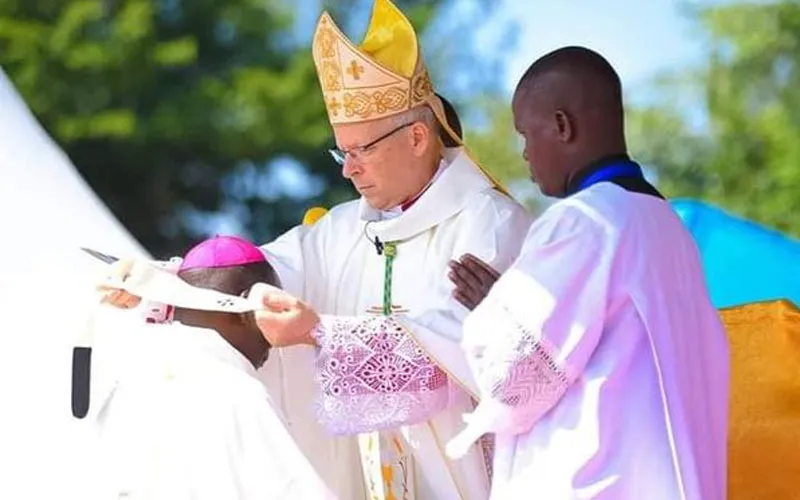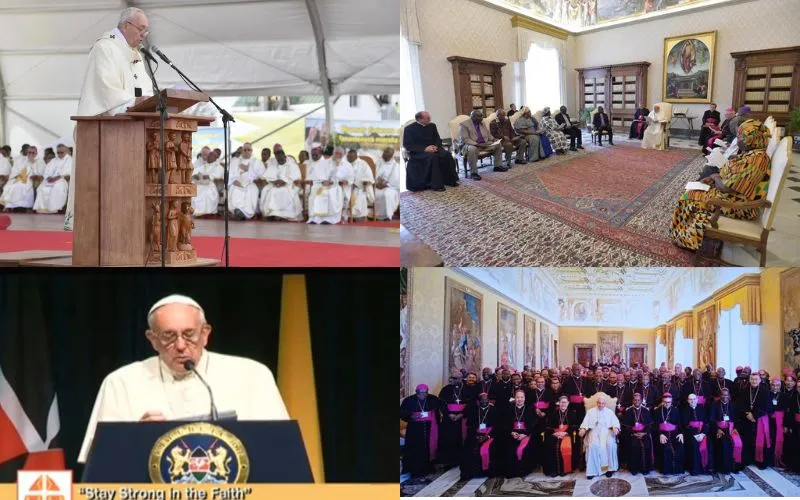Nairobi, 02 August, 2022 / 9:30 pm (ACI Africa).
The representative of the Holy Father in Kenya has challenged Catholic Bishops not to limit themselves to “big celebrations”, but “to go where people are” and to bring those lost in sin back to the community of God.
In his homily at the imposition of the Pallium on Archbishop Maurice Muhatia Makumba of the Archdiocese of Kisumu in Kenya, Archbishop Hubertus van Megen explained that the vestment should be a reminder that the Archbishop is the shepherd of the people of God and should go out to look for them when they are lost.
“The Pallium of wool on the shoulders of the Archbishop reminds us of Christ the Good Shepherd who takes the last sheep on his shoulders to bring it back to the flock. Similarly, a Bishop needs to go out and look for the lost sheep; the sheep that is lost in darkness and in sin,” Archbishop van Megen said during the July 30 event.
He added, “A Bishop therefore needs to be among the people and with the people. He needs to go where the people are, not only in church, not only at the big celebrations, but most importantly at everyday events, at their workplaces, in school, at their homes, at the football game, at a feast and maybe even in the bar. The shepherd needs to be where the people are.”
The Apostolic Nuncio in Kenya who also represents the Holy Father in South Sudan noted that the first and foremost calling of any Bishop or Priest is to be with the lowly.








